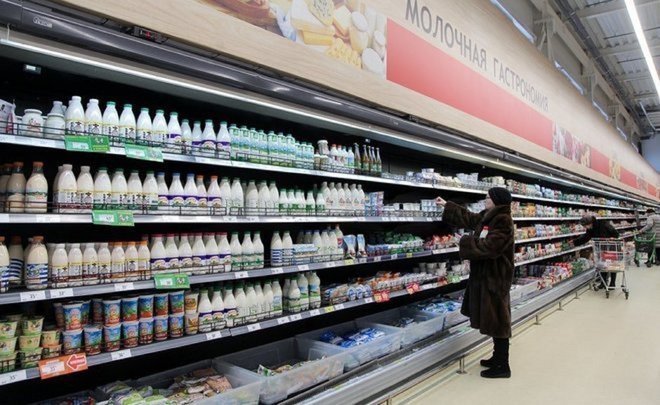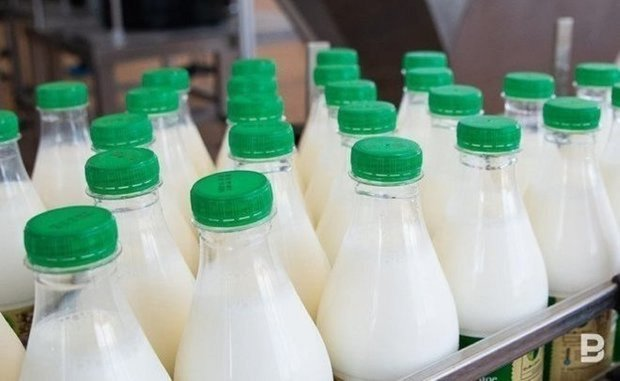‘Made in Russia’ packaging: what to replace Tetra Pak?
Petrochemists are able to meet the needs of the Russian market in polymers for product packaging

Tension is growing around the topic of a possible shortage of antiseptic packaging for long-term storage of liquid food products. Western manufacturers of bags and boxes for juice, milk and other food products have announced the suspension of supplies, investments or work in Russia in general. The remaining players express concern that difficulties may arise with the purchase of imported raw materials: cardboard, polyethylene, foil — necessary for the manufacture of tetrapak type packaging. At the state level, various solutions to the problem are being considered: from switching to alternative types of packaging to replacing imports with domestic analogues. At the same time, SIBUR's production facilities have established the production of a whole line of polymer raw materials for a variety of requirements and conditions. What and how the petrochemists of the country are ready to help quickly and without great losses to replace the products that have become scarce — read in the material of Realnoe Vremya.
Manufacturers fear a shortage of containers
In early March , the suspension of production in Russia was announced by Norwegian Elopak, which produces Gable Top and Pure-Pak packaging and Finnish-Swedish Stora Enso, which produces paper and corrugated packaging. On March 11, Swedish Tetra Laval group, which includes Tetra Pak, Sidel and DeLavalTetra Pak, announced a decrease in packaging production in Russia.
About disruptions in the supply of juices and milk to Russian stores due to a shortage of containers for filling and storing products, Vedomosti reported. Referring to retailers and representatives of a large food manufacturer, the publication noted that “now market participants are recording a shortage of tetra pack (sterile packaging made of several layers of cardboard, polyethylene and foil, designed for long-term storage of liquid food). Possible difficulties associated with a shortage of packaging for milk, kefirs and juices are being prepared in Vkusvill. X5 Group is seeking alternative suppliers.
In a comment to Realnoe Vremya, Andrey Shutov, managing shareholder of Komos Group agroholding, said that Kazan Dairy Plant PLC is already packing products in several types of packaging: a plastic PET bottle for fresh format products. This container has become somewhat more expensive, but there are no problems with its supply. The second major position is the yogurt and dessert group, cheese, cottage cheese and film. There are no difficulties with packaging here either.
“And finally, the third type is UHT milk, which is bottled on Tetra Pak lines, and this company is the main supplier of packaging solutions. Currently, we have not received any official notifications from Tetra Pak representatives about the disruption of planned deliveries to the territory of the Russian Federation. Moreover, we have verbal agreements with the company that the supply of packaging for socially important goods — milk, cocktails of all kinds, as well as products for baby food, will be carried out as usual. Now there is a contract for May, and we hope that there will also be no interruptions in the supply of this package," Shutov said.
Looking for an alternative
“Indeed, Russian packaging manufacturers were quite deeply integrated into global supply chains," Artem Belov, the director general of the National Union of Milk Producers Soyuzmoloko, said on the pages of Milknews online resource. “Despite that a significant number of manufacturers of packaging materials make the finished product in Russia, many components have been imported, and it will take some time to find alternatives or switch to other types of packaging.”
Deputy Head of the Duma Committee on Agrarian Issues Nadezhda Shkolkina spoke more categorically:
“There is a certain supply of tetrapack in Russia, and this makes it possible to refocus on the issue of packaging, allow time for replacement, and we are also looking for parallel suppliers. But even before, milk and juices were bottled not only in tetrapack, but also in plastic and glass bottles, milk is also sold in plastic packaging. Please note: there is milk. And we can make another packaging, as an option — to put automatic machines — 'milkbots'," she commented on the situation to RIA Novosti.
Director of the Dairy Union of Russia Lyudmila Manitskaya also called for the transition to domestic packaging. There are specialised companies in Russia, and polymers are produced by SIBUR. In particular, polyethylene is produced by several holding sites at once, including Tatarstan's Kazanorgsintez.
Clearly, it is nearly impossible to instantly set up one’s own production that can fully meet the needs of the Russian market for a sufficient amount of all necessary types of Russian packaging. But given the fact that the country has its own feedstock, we can hope for import substitution.
They go but stay
An important moment is that even if a foreign company makes a decision to leave the Russian market, production capacities, top-class specialists and workers as well as the money invested by a Russian business or the state in its development stay in the country.
When more and more foreign businesses started to announce their readiness to halt operations in Russia in early March, the government of the country prepared three possible scenarios of relations with foreign partners:
— A company continues fully-fledged work in Russia fully saving supplies of feedstock, materials, components that are necessary for production, meeting their labour commitments to the employees:
— The management of the share of foreign stakeholders is transferred to Russian partners with the further possibility of their return to the Russian market:
— A company leaves the Russian market, closes the enterprise and dismisses the employees, which is considered as intentional bankruptcy by the Russian government. Business management is handed over to honest Russian entrepreneurs who are ready to provide the business’s effective function and save the staff through an accelerated procedure.
The Russian president’s meeting with the Russian government was on 10 March where Russian Prime Minister Mikhail Mishustin confirmed the readiness to introduce external administration of the capacities of foreign companies leaving Russia.
“As the chairman of the government has proposed, it is necessary to introduce external management and give these enterprises to those who want to work. There are enough instruments, legal market instruments,” Vladimir Putin backed the proposal of the chairman.
This can affect those foreign companies making packaging and halting their production. Equipment was installed, the area is equipped, the staff consisting of Russians is trained and is familiar with the technology. It is necessary to replace foreign materials for the same multi-payer packaging. The Russian Ministry of Industry and Trade has already analysed the market, and the administration of the Russian prime minister for agriculture, environment and realty told Viktoria Abramchenko in a comment for Izvestiya outlet that the country had enough capacities to both make packaging itself and produce separate types of feedstock it needs.
So white cardboard by Sylvamo from Svetlogorsk and Mondi from Syktyvkar are considered as an alternative to Stora Enso’s products that left the Russian market. Also, there are a lot of brown cardboard manufacturers. While Russian gas and petrochemical companies already make a wide range of polymers for different purposes, including special polyethylene brands. SIBUR is the Russian industry’s leader both in total capacity and product assortment. There isn’t going to be a problem with foil production either. Russia in the world’s top 3 in aluminium smelting. All this permits us to hope that the transition won’t be too long.
Temporary solutions during transition
As for selling milk to the consumer’s PET bottles, Tatarstan farmers who sell their products in the markets without intermediaries mastered this type of packaging a long time ago. In one of the Kazan markets, farmer’s milk from Vysokaya Gora District has long been sold in 1-3-litre PET bottles.
“We had a meeting and we decided to switch to using PET bottles,” chain store manager of Kasymovo Milk Factory Natalia Serebryakov told Realnoe Vremya. “Since we have our own organic production, we didn’t consider using Tetra Pak because ultra pasteurised milk with a long shelf life is poured into this packaging.”

When refusing such packaging, the consumer in fact doesn’t lose but wins bonuses as a good quality of milk, Serebryakova is convinced. Ultra pasteurised milk a priori has fewer vitamins and beneficial components than in simply pasteurised milk. While the absence of Tetra Pak leads to losses for producers and chain stores. Logistics is the matter. If Tetra Pak milk is stored for from four months, in a PET bottle, it does for from 10 days and more, but no longer. And for instance, when delivering the product to Moscow, the producer loses two days of the limited shelf life because of this.